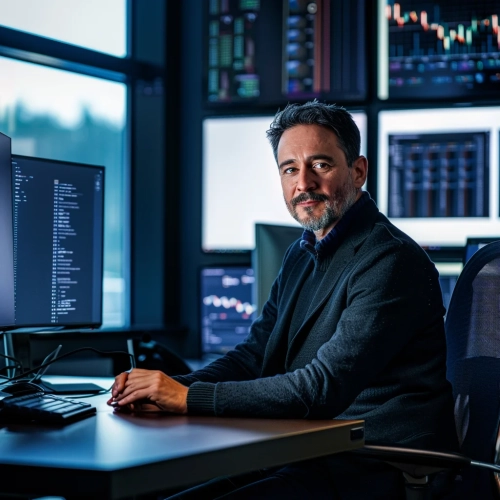


Security engineers monitor and manage corporate networks. With their in-depth IT expertise, they identify potential risks and develop preventive strategies. On a day-to-day basis, they advise the company on defining an effective security policy. This professional assesses the level of threat, then designs and implements anti-intrusion systems.
Always on the alert for rapidly evolving cyber threats, they adapt and reinforce protective measures to guard against any vulnerabilities. In the field, the security engineer raises employee awareness of good security practices.
This job is in the field of systems and networks.







Security engineers have technical expertise in operating systems, networks and IT architecture. This expertise is complemented by a mastery of security standards and legislation, as well as protection tools such as firewalls, antivirus software and authentication servers. They know how to anticipate risks, diagnose intrusions and intervene effectively in emergencies.
In addition to their technical skills, security engineers need to be rigorous, responsive and have excellent communication skills, particularly in technical English, in order to collaborate effectively in international contexts and maintain security at an optimum level.
To become a security engineer, you need to have completed 5 years of higher education, often via a master's degree specialising in cybersecurity or systems and networks, or a degree from an engineering school. Alternative routes include a computer science degree (BUT Informatique) followed by a bachelor's degree and a master's degree in IT systems security.
Schools such as Epita in Paris specialise in this field. It is also beneficial to acquire professional certifications such as ITIL, CISM, CISSP or CISA, and to have at least two years' practical experience to strengthen the professional profile and improve career prospects.
Security engineers with solid experience can become Chief Information Officer (CIO) or Chief Security Officer (CSO), overseeing all aspects of a company's IT security. They may also choose to specialise asexperts in penetration testing , vulnerability analysis or data protection.
As their expertise grows, they become sought-after candidates for large companies or may opt for a career as an independent consultant with their own client portfolio.